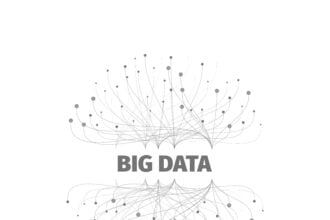To some extent, business is a practice in trial and error. You start with a business plan and try to cover all your bases. Then, you make adjustments based on what’s working within your business model— and what isn’t.
Sometimes, however, the factors that are slowing down your business’s growth aren’t obvious. It’s important to get an objective look at where there are shortcomings in your business model. That’s where modern data tools come in.
Here’s what you need to know about using data to improve your business model and boost your company’s growth.
Data is An Important Tool for Businesses
Businesses are creating data all the time. Data points might include the number of pageviews on a website, the length of time it takes an employee to complete a specific task, or social media likes. Each business creates different data points, which can be collected and used to help guide strategy.
Data is an important tool for businesses because it allows them to identify opportunities, track trends, and gain powerful insights. It can be used for all kinds of applications, from solving a business’s operational problems to improving its marketing strategy. It can even be used to detect fraud.
Business data analysis used to be extremely expensive and impractical for all but the largest corporations. Fortunately, however, it’s become much more accessible, even for small businesses. Today, there is user-friendly software available that even the smallest business can use.
Setting Up Your Data Collection
If you haven’t done so already, the first step is to pick out software that will collect your data so you can use it. Some website builders have analytics built in, but many businesses need something more robust.
There are lots of great options to choose from and many are quite affordable. It’s a good idea to do a little research before you choose the software you want to use, as it might be difficult to switch later.
Using Data to Find Shortcomings & Opportunities
No business model is perfect. All you can do is use the data that’s available to you at the time you start your business and make your best projections. However, once your business is up and running, it’s important to reevaluate your business model on a continual basis.
Data analysis begins with a dataset— and usually, the bigger the better. More data typically makes the insights you’ll gain more reliable. However, if you’ve only just started to track your data, you can still use it to find shortcomings in your business model.
Next, you need to ask a question. For example: where could we improve efficiency in everyday operations? Then, you would be able to turn to the data and see where time (and money) was wasted.
For example, a doctor’s office might notice that the wait times when patients arrive at their appointments is excessive and it’s causing frustration for both staff and patients. If they collect enough data, they can see the average wait time and see which variables affect how long a patient will have to wait. Then, they could adjust how they schedule or check patients in to help solve the problem and increase customer happiness while decreasing staff stress.
Hospitals also frequently use data to lower the cost of care and find operational inefficiencies. It’s important to be specific in regards to your goals and the questions you use to guide your analysis. That way, you can isolate problems and better understand what is causing them.
Understand That Not All Data is Useful
Data can be the most valuable tool for your business, period. It can also be completely useless if you don’t recognize poor-quality data. Analyzing poor-quality data is a waste of time that can cost your business.
It’s important to understand that not all data is useful. Concentrate on the data that can help you solve problems or otherwise improve your business and don’t worry about the rest.
Data Can Help You Gain a Competitive Edge
Business data analysis has many potential benefits, regardless of your industry and business model. Large companies rely on data to help guide decision-making and improve overall performance.
Small businesses can gain a competitive edge by using data in their decision-making process. It can be difficult to compete in today’s marketplace if you’re relying on instinct alone. Data can help your business survive and thrive in a competitive landscape!









